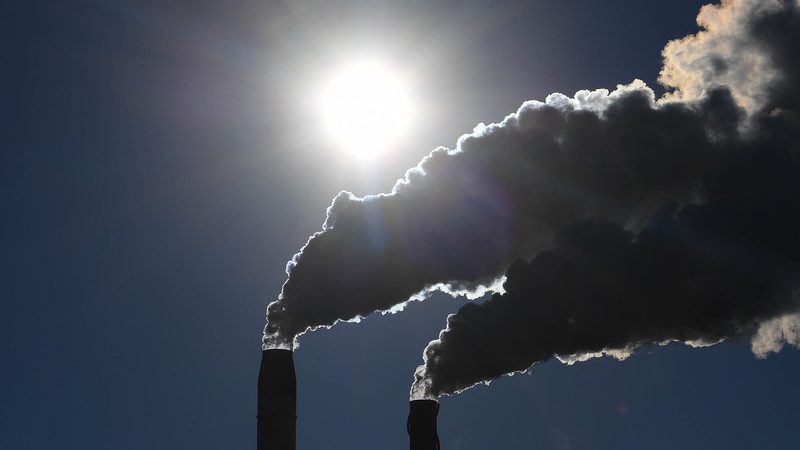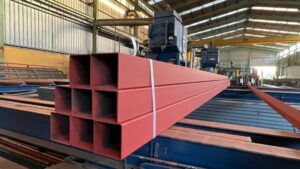The EU is backing seven large-scale industrial decarbonization projects through its Innovation Fund, with over Eur1.1 billion ($1.3 billion) to support breakthrough technologies in energy-intensive industries, hydrogen, carbon capture, use and storage and renewables, the European Commission said in a statement Nov. 16.
The grants will support projects in Belgium, Italy, Finland, France, the Netherlands, Spain and Sweden, and were selected for their greenhouse gas reduction potential, it said.
“Innovation is crucial to provide the solutions we need this decade to keep 1.5 C within reach,” EC Executive Vice-President Frans Timmermans said in the statement.
“Together with sharp emissions reductions, innovation gives us a path towards the Paris Agreement,” Timmermans said. “Today’s decision gives concrete support to clean tech projects across Europe and enables them to scale up game-changing technologies that support and speed up the transition to climate neutrality.”
The selected projects include the chemicals, steel, cement, refining, power and heat sectors. All are either part of industrial hubs or would kick-start industrial decarbonization clusters, the EC said.
The selected projects are “sufficiently mature to enable their quick deployment,” have potential to scale and are cost effective, the statement said.
The successful projects include Hybrit in Sweden that aims to eliminate GHG emissions from steel production by using renewable hydrogen in Gallivare and Oxelosund. A demonstration project in Finland will produce clean hydrogen at a refinery in Porvoo with CCS.
A French CCS project for a cement plant also received the EU’s backing, along with a CCS value chain at the Port of Antwerp in Belgium, including the production of hydrogen and chemicals.
In the renewable energy sector, the EU is supporting an industrial-scale pilot to produce solar photovoltaic cells, while a Spanish project will convert waste to methanol. The EU is also supporting a full-scale bioenergy CCS facility in Sweden.
Successful projects will now prepare individual grant agreements with the European Climate, Infrastructure and Environment Executive Agency, the body implementing the fund, to be finalized in the first quarter of 2022, the EC said.
The first Innovation Fund call is to support large-scale projects with capital costs of over Eur7.5 million.
“Our Fit for 55 package proposes to increase the Innovation Fund so that even more innovative European projects and ideas can jump ahead in the global climate innovation race,” Timmermans said.
The EC launched a second call for large-scale projects on Oct. 26, with a deadline of March 3, 2022. It is encouraging all projects unsuccessful in the first round to re-apply.
The EU will separately fund smaller projects with capital costs below Eur7.5 million through the Innovation Fund.
| Successful EU Innovation Fund projects | ||||
| Project name | Location | Participants | Description | CO2 avoided in first 10 years (million mt) |
| Kairos-at-C | Belgium, Netherlands, Norway | Air Liquide, BASF | Cross-border CCS value chain. Multi-modal CO2 transport infrastructure in Antwerp, storage in North Sea. | 14.2 |
| Tango | Italy | Enel Green Power | Industrial-scale solar PV cell production, scaling to 3 GW/year from 200 MW/year. | 21 |
| BECCS@STHLM | Sweden | Stockholm Exergi | Full-scale bio-energy carbon capture and storage facility at existing heat and power biomass plant in Stockholm. | 7.8 |
| K6 | France | EQIOM, Air Liquide, VDZ | Decarbonization of Lumbres cement plant through biomass and alternative fuels, plus CCS. | 8.1 |
| Ecoplanta | Spain | Ecoplanta Molecular Recycling Solutions | Project to convert non-recyclable waste to chemicals and biofuels, displacing fossil fuels. | 3.5 |
| Hybrit demonstration | Sweden | Hybrit, SSAB, LKAB, Vattenfall | Replaces coal-based blast furnaces in steel production with direct hydrogen-based reduction technology. | 14.3 |
| Sustainable Hydrogen and Recovery of Carbon (SHARC) | Finland | Neste | Hydrogen production by renewable-powered electrolysis and from fossil fuels with CCS at Porvoo refinery. | 4 |
| Source: European Commission |
— James Burgess






